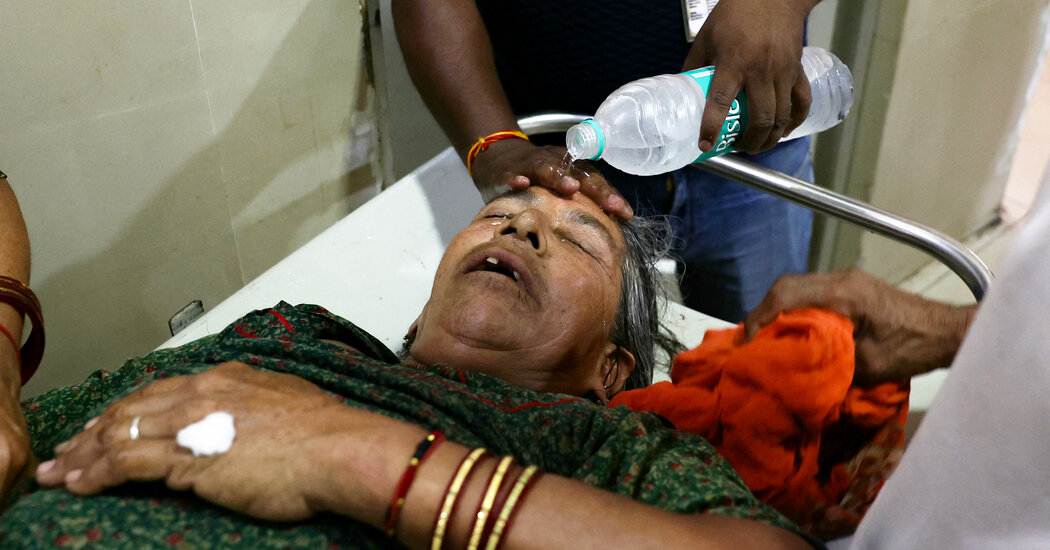Certain antidepressants, blood pressure pills and other drugs make you more susceptible to heat-related illness. Here’s what to know.
A major heat wave is expected to hit much of the eastern United States this week. And millions of people across the country are taking medications that may make them more susceptible to heat-related illnesses.
Taking certain drugs — including some used to treat mental health conditions, high blood pressure and allergies — can make it even more difficult to stay hydrated or efficiently cool your body when it’s hot outside. Here’s what to know, and how to stay safe during scorching temperatures.
Medications that may raise risk
Diuretics, which doctors prescribe to manage heart failure, kidney disease or high blood pressure, help your body reduce fluid through frequent urination. But they can also cause dehydration or lead to an imbalance of electrolytes such as potassium or salt, which make it harder for the body to regulate its temperature, said Allison Hill, the director of practice implementation and professional affairs at the American Pharmacists Association.
This can be especially dangerous in extreme heat, which also leads to dehydration. Experts said that makes it even more crucial for people on diuretics, also called water pills, to replenish with water and electrolytes and to pay attention to signs of dehydration and overheating.
Angiotensin converting enzyme inhibitors, or ACE inhibitors, which are commonly prescribed to treat high blood pressure, can increase the risk of fainting and falling, particularly in extreme heat, said Dr. Michael Redlener, the medical director of the emergency department at Mount Sinai West. They also suppress the feeling of thirst, making it harder to tell when you need to drink more water.
Beta blockers, another type of blood pressure medication, can also increase the risk of fainting and falls and make it harder to sweat, which makes it more difficult for your body to keep cool.
